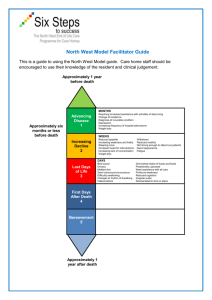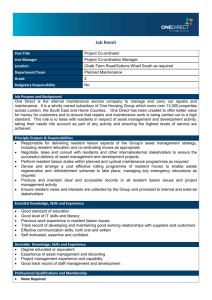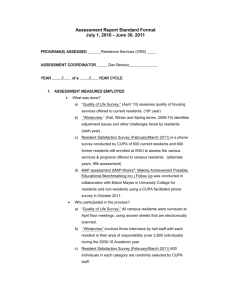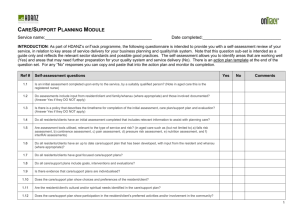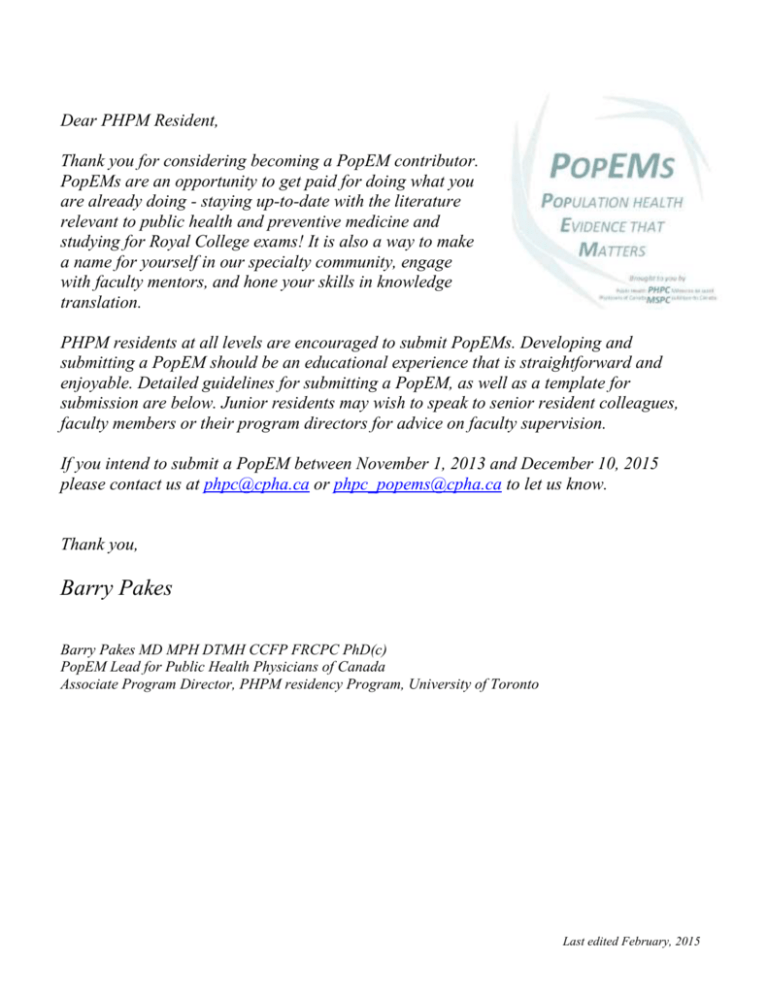
Dear PHPM Resident,
Thank you for considering becoming a PopEM contributor.
PopEMs are an opportunity to get paid for doing what you
are already doing - staying up-to-date with the literature
relevant to public health and preventive medicine and
studying for Royal College exams! It is also a way to make
a name for yourself in our specialty community, engage
with faculty mentors, and hone your skills in knowledge
translation.
PHPM residents at all levels are encouraged to submit PopEMs. Developing and
submitting a PopEM should be an educational experience that is straightforward and
enjoyable. Detailed guidelines for submitting a PopEM, as well as a template for
submission are below. Junior residents may wish to speak to senior resident colleagues,
faculty members or their program directors for advice on faculty supervision.
If you intend to submit a PopEM between November 1, 2013 and December 10, 2015
please contact us at phpc@cpha.ca or phpc_popems@cpha.ca to let us know.
Thank you,
Barry Pakes
Barry Pakes MD MPH DTMH CCFP FRCPC PhD(c)
PopEM Lead for Public Health Physicians of Canada
Associate Program Director, PHPM residency Program, University of Toronto
Last edited February, 2015
Guidelines for PopEM Submissions
General Information
Population Health Evidence that Matters (PopEMs) are biweekly peer reviewed electronic evidence-summaries for
Public Health and Preventive Medicine specialists in Canada. They are a population medicine version of the
popular ‘patient oriented evidence that matters (InfoPOEMs)’ distributed to clinicians by the Canadian Medical
Association.
PopEMs provide a brief review and analysis of a current practice-relevant article or report from the public health
and medical literature and are designed to be read in <5 minutes. The PopEM project is part of an effort to help
PHPM practitioners and medical officers of health to meet the MOH Core Competency Domains. The PopEMs
project is administered by your national specialty society – the Public Health Physicians of Canada (PHPC).
PopEMs are distributed by email every second Thursday to Canadian Public Health and Preventive Medicine
specialists and practitioners in both official languages. PopEMs are also posted to the PHPC website and archived.
Goals of the PopEMs project include:
1) For PopEM subscribers:
a. Increased knowledge of up-to-date evidence and best practices directly relevant to subscribers’
public health work.
b. Enhanced relationship and familiarity with the published literature, leading to increased use of
evidence in all areas of practice.
c. Increased interest in, and opportunities for, contributing to knowledge generation and scholarly
activity.
2) For PopEM contributors/creators:
a. Improved resident (PopEM contributor) familiarity with the public health literature, specific
content areas, as well as improved skills in knowledge translation.
b. Opportunities for faculty and public health leader engagement and mentorship with residents as
well as scholarly activities regarding knowledge translation in public health.
3) For the Public Health Physicians of Canada:
a. Creation and maintenance of a community of practice through engagement in PopEM and other
CPD activities.
b. Improved communication between knowledge users, knowledge creators, and public health
advocates with a view to increase collaboration, working toward common goals and agenda
setting.
Criteria
PopEMs are intended to be a succinct synopsis and brief analysis of a single journal article or a report. Articles
may be of any type: research, review, meta-analysis, framework or policy. PopEMs are not topic summaries or
reviews drawn from multiple sources.
1) Relevance: PopEMs are published with the intent to provide useful information to public health physician
practitioners in Canada. PopEMs are likely to be of interest to all public health practitioners. However, our
primary stakeholders are physicians working in public health at the local, regional, provincial or federal level.
Public Health and Preventive Medicine Specialists in other roles including researchers and educators are our
secondary targets. Submissions with the highest level of practical utility are the most likely to be accepted.
2) Originality and Currency: The goal of PopEMs is to provide value-added information to Canadian public
health practitioners. Ideally, PopEMs should report on new information (within the past year) that has not
been widely disseminated or discussed in other forums. Content that is of particular relevance to Canadian
practitioners is preferred, but relevant global health content will also be accepted.
3) Quality: Submissions must be evidence-based. That is, primarily, but not exclusively, referring to the peer
reviewed scientific literature. Published public health research from public health agencies and authorities,
Last edited February, 2015
‘grey literature’, unpublished or proprietary information and other reports will be considered on a case-by-case
basis. Reports using both qualitative and quantitative methods are encouraged.
Format
1) Text: Prepare PopEM in Microsoft Word (using the below template) and send to phpc_popems@cpha.ca .
2) Length: The four core text fields (described below) should not exceed 350 words. The comments/analysis
section may be a maximum of an additional 150 words. Objects, including tables or figures, cannot be included
in the distribution, but can be included as links. Maximum length does not include title, author names,
references or acknowledgments.
3) Components: For examples of the basic PopEM format, please see CDC MMWR.
PopEMs should contain the following elements:
a. Background: A brief introduction detailing what is already known on the topic. This may include
information on the topic, the methods, or the authors. PopEM readers are expected to be somewhat familiar
with most topics - background information should be tailored accordingly.
b. Methods: A description of how the information was gathered. This may include the type of data collected,
the approach to data gathering and analysis, as well as concise critical appraisal comments on how the
methods impact the validity or utility of the results.
c. Findings/Results: What is added by the new report/study.
d. Implications: What are the conclusions and implications of this new research on public health practice in
Canada and globally. How generalizable are the results and what actions ought to follow? This section may
include brief comments on ethical implications of the evidence.
e. Contributor Comments/Analysis: The purpose of PopEMs is not only presentation of the evidence and
information, but some degree of analysis. The contributor may comment on validity or utility of the
evidence being reviewed within the above PopEM fields or in the “Contributor Comments/Analysis”
section. PopEM authors should make it clear when they are citing evidence or opinion.
f. MOH competency Domains: All PopEMs must identify the most relevant Minimum Core Competencies for
MOHs that are addressed by the PopEM. The competency domains can be found by linking here: MOH
Core Competency Domain(s).
g. Content area: Please indicate content areas discussed in the PopEM to facilitate content indexing. These
may include but not limited to one of the followings: Health Promotion, Chronic Disease, Communicable
Disease, Health Systems, Environmental Health, Policy/Planning, and Management. Author may choose up
to 2 content areas.
h. Keywords: Authors are encouraged to create a minimum of 3 keywords to facilitate the search for and
retrieval of published PopEMs online.
i. Other references/More information: Authors are encouraged to direct readers (through links, citation,
websites, organizations) to other resources for those interested in learning more about the topic. Ideally,
these resources should be available to access on the web without fees or via institutional libraries.
References to internal or proprietary documents not available to the public are discouraged unless
absolutely necessary.
j. Acknowledgements: This section includes acknowledgement of those who substantially assisted with any
element of the PopEM including translation.
4) Resident Contributor: This field should be limited to the resident(s) who prepared the PopEM. No more than
two residents may jointly prepare a submission.
5) Supervised by: Supervisors who oversaw the production of the PopEM should be identified in this field.
6) References: Follow the APA style for citations.
Last edited February, 2015
Translation
All PopEMs will be distributed in both English and French. Residents/Supervisors are encouraged to provide
PopEM submissions in both languages, however, PopEMs may be submitted in either official language.
Translation by another resident in Canada will be sought.
Ownership Copyright
Copyright of all PopEMs submitted will belong to the Public Health Physicians of Canada. PHPC shall retain the
right to use submitted content at its discretion without prior approval of the contributor(s) or supervisor(s). This
includes, but is not limited to, the right of PHPC to redistribute or collate this content.
Evaluation
PopEM subscribers/readers are encouraged to fill out a brief evaluation of each PopEM in order to provide
feedback to those developing them and ensure that they are meeting the practice needs of subscribers. Periodic
evaluations of the PopEM project will be undertaken by the project team.
Author Instructions, Roles and Remuneration:
1) Resident authors:
PopEMs are to be prepared by one or two residents under the supervision of a PHPM specialist faculty
member. Residents interested in preparing a PopEM should contact PHPC at phpc_popems@cpha.ca to
express their interest. Resident authors are expected to seek out a local PHPM specialist as supervisor to guide
topic selection, syntax and analysis. A faculty supervisor can be sought at any stage of PopEM preparation,
but residents are encouraged to discuss topic selection with a faculty member early in the process. Residents
will be provided an honorarium of $100 for unilingual submissions, and $140 for bilingual submissions.
2) Faculty supervisor:
The role of the faculty supervisor is to assist the resident in preparing a PopEM that meets the criteria above –
including topic selection, accurate communication of the evidence, and insightful and practice-relevant analysis
and commentary, if applicable. Faculty supervisors will be provided an honorarium of $100 per submission.
3) PopEM Lead:
The PopEM lead is a PHPM specialist overseeing the project who will review and approve all submissions
before distribution. Acceptance of the PopEM material will be made at the discretion of the Lead and is based
on: public health implications and importance; timeliness; Canadian relevance; written quality; and originality
of content/resources. The PopEM lead may make small grammar and syntax edits, but any major revisions will
be returned to the residents and supervisor for resubmission.
Submissions Specifications
Contact Information
1) Rosiane Simeon, PHPC Project Officer, e-mail: rsimeon@cpha.ca, telephone: 613-725-3769 ext. 262
2) Barry Pakes, PopEM Lead, e-mail: phpc_popems@cpha.ca
3) Leah Salvage, PHPC Secretariat Staff, e-mail: phpc@cpha.ca, telephone: 613-725-9510 ext. 184
Last edited February, 2015
TEMPLATE FOR SUBMISSIONS
(modified from CDC MMWR Format)
PopEM Title:
Key Reference:
What is already known on this topic (background)?
How was this information gathered (methods)?
What is added by this report/study (findings/results)?
What are the implications for public health practice (conclusions)?
Contributor Comments/Analysis:
Which MOH Core Competency Domain(s) does this report/study link to?
List of relevant content area (s)
List of keywords
Resident Contributor (Name, University):
Supervised by (Name, Affiliations):
Other References/For More Information:
Acknowledgements (including translation):
Copyright PHPC. All Rights Reserved.
Last edited February, 2015





